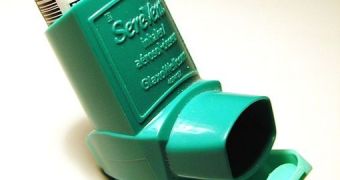Following a recently published Norwegian research, which found a moderate connection between C-section births and asthma, the new Swiss study proved that the two were indeed tightly linked, especially if the parents were both highly allergic to various pathogens or had had an asthma history in the past. The respiratory disease currently affects some 300 million people worldwide, and babies are most prone to developing the symptoms, which include shortness of breath, wheezing and coughing.
"The increased rate of Cesarean section is partly due to maternal demand without medical reason. In this situation the mother should be informed of the risk of asthma for her child, especially when the parents have a history of allergy or asthma," Kinderspital Zurich researcher Caroline Roduit wrote in the new study, which followed the evolution of some 3,000 children from birth since they turned 8 years old.
By the time the research was concluded, 12 percent of the children who had their respiratory health monitored had already developed clinically-diagnosed asthma, and were already on steroids. Physicians prescribed medication to the 362 children although they were so young, because they said that, otherwise, their lives would have been jeopardized.
Out of the test subjects, some 9 percent were born through C-section, but those kids exhibited an 80 percent higher chance of contracting asthma until they turned eight. The researchers warn that this trend could go into a steep climb over the next few years, as more and more Western women prefer not to give birth naturally, and ask their caregivers to perform C-sections. And seeing how previous studies found no correlation between the way a child is born and long-term health risks, it's very likely that some women may consider the risk acceptable.
The incidence of asthma in the control group was even higher when researchers took into account the medical history of parents. Analysis of these documents revealed that children who had at least one parent who was allergic or asthmatic were almost sure to develop similar respiratory conditions by the time they turned 8.

 14 DAY TRIAL //
14 DAY TRIAL //